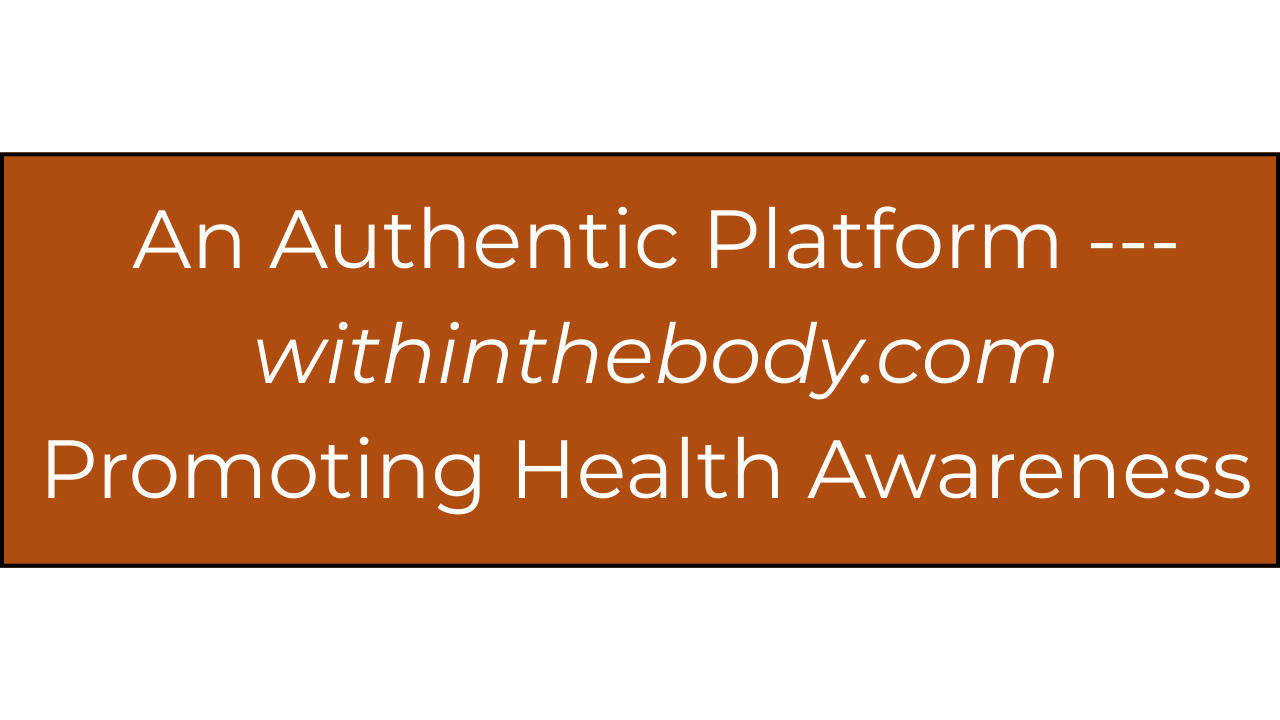Mind-Body Connection: How Stress Affects Your Body(A Physician’s Perspective for Readers, Students & Clinicians)


Stress is not merely an emotional experience—it is a full-body physiological event. The body interprets stress as a threat, activating systems that were designed for survival thousands of years ago. While these mechanisms help in emergencies, chronic activation creates silent but progressive damage across nearly every organ system. As physicians, we observe the consequences of unmanaged stress daily: unexplained headaches, resistant hypertension, gastrointestinal discomfort, palpitations, fatigue, sleep disturbances, and flare-ups of chronic illnesses. Understanding the mind-body connection is therefore essential—not only for improving quality of life but for preventing long-term disease.
General Readers
For most people, stress feels “emotional,” but the body experiences it as a chemical storm. When you are stressed:
• Your heart beats faster
• Blood pressure rises
• Muscles tighten
• Digestion slows
• Sleep becomes light or disturbed
• Appetite oscillates between “too much” and “too little”
• Immunity weakens
These changes are not imaginary—they are measurable and medically significant. Persistent stress can contribute to diabetes, heart disease, weight gain, gut disorders like IBS, menstrual irregularities, sexual dysfunction, and chronic pain. Learning to identify your stress signals early—tight chest, irritability, headaches, fatigue—is the first step toward control.
Medical Students
For students beginning their medical journey, stress physiology is an anchor concept. The mind-body connection is mediated through neuroendocrine pathways, autonomic nervous system activation, and inflammatory mediators. As you progress into clinical years, you will encounter patients whose test results appear normal despite significant symptoms. These are not “psychological complaints”—they are real manifestations of physiological dysregulation induced by chronic stress.
Understanding stress is essential because:
• It influences nearly all organ systems
• Chronic disease control is harder without addressing stress
• It affects treatment adherence
• Patients often present with overlapping physical and psychological symptoms
Your ability to recognize these interactions early will improve diagnostic accuracy and patient outcomes.
Young Doctors
Early in your career, you will face patients whose illnesses appear “mild” but whose suffering is severe. Stress serves as both a trigger and amplifier for disease. Young physicians must adopt a holistic approach—one that respects laboratory results but also values patient narratives.
Focus on:
• Emotional cues in the patient
• Unexplained physical symptoms
• Sleep patterns
• Workload and life stressors
• Past traumatic or stressful events
• Lifestyle habits
Counsel patients gently. Many hesitate to accept stress as the cause of their symptoms because they fear it implies weakness or “it's all in their head.” Use simple biological explanations to build trust.
General Practitioners
As frontline physicians, you will observe the broadest spectrum of stress-related illnesses. Stress may disguise itself as:
• Hypertension uncontrolled on multiple drugs
• Migraines or tension headaches
• Chest tightness mimicking angina
• Palpitations
• IBS
• Back or neck pain
• Fatigue and sleep disorders
• Worsening asthma or allergies
• Poor diabetes control
A short stress-screening approach works well in primary care:
• Do symptoms improve on weekends or vacations?
• Are sleep, appetite, or concentration affected?
• Is the patient experiencing chronic workload or emotional trauma?
• Does relaxation reduce symptoms?
Teaching foundational stress-management techniques—breathing exercises, structured routine, physical activity, sleep hygiene—can dramatically reduce symptom burden.
Pathophysiology
The mind-body connection operates through interconnected systems:
1. Hypothalamic-Pituitary-Adrenal (HPA) Axis
Stress signals → Hypothalamus → CRH release → Pituitary → ACTH → Adrenal glands → Cortisol
Result:
• Raises blood sugar
• Suppresses immunity
• Increases blood pressure
• Alters digestion
• Affects mood and cognition
Chronic elevation leads to metabolic syndrome, central obesity, fatigue, and immune dysfunction.
2. Sympathetic Nervous System Activation
The “fight-or-flight” response releases adrenaline and noradrenaline.
Effects:
• Rapid heartbeat
• Tremors
• Sweating
• High blood pressure
• Dry mouth
• Muscle tension
With chronic stimulation, it contributes to arrhythmias, anxiety, insomnia, and chronic pain.
3. Inflammatory Pathways
Stress increases inflammatory cytokines (IL-6, TNF-α), which accelerate:
• Atherosclerosis
• Autoimmune flare-ups
• Insulin resistance
• Chronic fatigue
• Depression
4. Gut-Brain Axis
Stress disrupts gut motility and microbiome balance, leading to:
• Bloating
• Cramping
• IBS
• Acid reflux
• Appetite changes
5. Hormonal Disruptions
Chronic stress impacts:
• Thyroid function
• Female reproductive hormones
• Testosterone levels
This leads to menstrual irregularities, infertility, low libido, erectile dysfunction, and mood instability.
When to See the Doctor
Consult a physician when stress begins affecting your physical health, especially if you notice:
• Persistent headaches or migraines
• Palpitations or chest discomfort
• New or worsening hypertension
• Unexplained gastric symptoms
• Weight gain or weight loss
• Fatigue lasting more than 2–3 weeks
• Sleep disturbances
• Mood changes—persistent sadness, anxiety, irritability
• Poor control of chronic conditions like diabetes, asthma, or IBS
• Repeated infections (reduced immunity)
Seek urgent care if stress symptoms mimic cardiac issues—chest tightness, shortness of breath, fainting, or severe palpitations.
Stress is not a mental weakness; it is a physiological storm that affects the entire body. Understanding this reality empowers individuals to take action early. From a physician’s perspective, stress is a risk factor for physical illness just like smoking, poor diet, or lack of exercise. When managed well—through lifestyle changes, awareness, healthy routine, and timely medical support—stress becomes manageable rather than destructive.
Your body speaks long before disease becomes visible. Listen to it, understand it, and respond with care.
Dos and Don’ts
Do
• Maintain a regular sleep schedule
• Practice deep breathing or meditation
• Walk daily (30–60 minutes)
• Stay hydrated
• Maintain social connections
• Take breaks during work
• Eat balanced meals
• Set practical boundaries
• Seek medical advice when symptoms persist
Don’t
• Ignore early physical symptoms
• Rely on caffeine or energy drinks to cope
• Skip meals during stress
• Overuse painkillers or sedatives
• Engage in emotional eating
• Suppress emotions for long periods
• Assume stress “will go away on its own”
• Self-diagnose heart or gastric symptoms
FAQs
1. Can stress actually cause physical disease?
Yes. Chronic stress contributes to hypertension, diabetes, heart disease, IBS, migraines, and immune dysfunction.
2. How can I differentiate stress symptoms from real medical disease?
You cannot always differentiate. If symptoms are persistent, worsening, or unusual, medical evaluation is essential.
3. Does stress weaken the immune system?
Absolutely. High cortisol decreases immune response, making infections more frequent.
4. Why do I feel stomach problems during stress?
The gut-brain axis reacts to stress through hormonal changes and altered motility, causing bloating, cramping, and IBS.
5. Can exercise reduce stress?
Yes. Exercise increases endorphins, improves sleep, reduces inflammation, and lowers stress hormones.
6. Are stress-related palpitations dangerous?
Usually not—but if they are new, severe, or persistent, you should see a doctor to rule out cardiac disease.
7. What is the best quick method to reduce acute stress?
Slow diaphragmatic breathing (4 seconds inhale, 6 seconds exhale) activates the parasympathetic system almost immediately.

By Dr. M. Tanweer Khan
A Proactive/Holistic Physician
Founder of WithinTheBody.com
